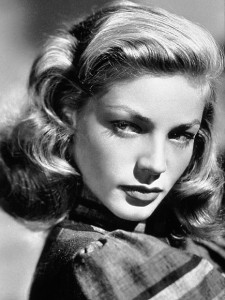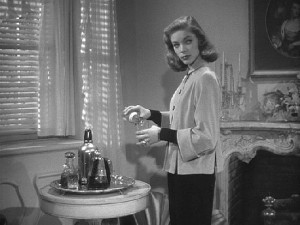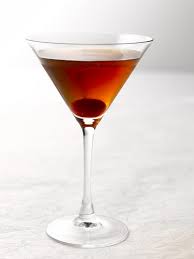Lauren Bacall and The Big Sleep: Film Noir Cool, White Collar Crime, Cocktail Cold
Reading Time: 5 minutes.

To the extent that it reflected crime, Lauren Bacall’s work was noir, not white-collar; black, not white; guns, not accounting fraud. Yet, there was an elegance and a fierceness about her films – especially those with Humphrey Bogart – that are familiar to those who work in a white-collar crime landscape.
David Brooks, writing in the New York Times, reflects on The Bacall Standard. In particular:
[Raymond] Chandler was not particularly kind to women, though. It was up to the director Howard Hawks and his star, Lauren Bacall — who died this week — to give that era a counterpart female ideal, a hero both tough and tender, urbane and fast-talking, but also vulnerable and amusing.
Vivian Rutledge, the lead female character in the movie version of Chandler’s “The Big Sleep,” is stuck in a classic film noir world. Every situation is confusing, shadowed and ambiguous. Every person is dappled with virtue and vice. Society rewards the wrong things, so the ruthless often get rich while the innocent get it in the neck.
The lead character, played by Bacall, emerges from an ambiguous past, but rises aristocratically above it. She has her foibles; she’s manipulative and spoiled. But she’s strong. She seems physically towering, with broad shoulders and a rich, mature voice that is astounding, given that Bacall was all of 20 years old when she made the picture.
We’ve written about Chandler before: Browning (The Poet, Not The Automatic). Speaking of Chandler’s dialogue in The Big Sleep (both the book and the film), Brooks notes:
The heiress greets Marlowe with a put-down: “So you’re a private detective. I didn’t know they existed, except in books, or else they were greasy little men snooping around hotel corridors.”
But he’s self-sufficient enough to stand up to her. He wins her over with a series of small rejections. And he can match her verbal pyrotechnics. When she says she doesn’t like his manners, he comes straight back at her: “I’m not crazy about yours. … I don’t mind if you don’t like my manners. I don’t like them myself. They’re pretty bad. I grieve over them long winter evenings.”
Here is a detailed Becall piece from The Rap Sheet, an excellent crime-fiction blog. An excerpt:
A former theater usher and fashion model, Bacall first came to prominence in 1944, when, at age 19, she starred with 44-year-old Humphrey Bogart in To Have and Have Not, a film based loosely on Ernest Hemingway’s 1937 novel of the same name. Her famous double entendre-laced line, delivered to a smoking, reclining Bogie–“You know how to whistle, don’t you, Steve? You just put your lips together and … blow”–knocked out movie-going audiences everywhere, and had no less impact on Bogart himself. At the time he was already on his third marriage, to actress Mayo Methot, but he divorced her the next year to wed Bacall, or “Baby” as he called her. The pair were together only until his death in 1957, but if Bogie’s ghost is still anywhere around today, he’s whistling for her to join him today.
Ghosts. Noir fiction and films worked on many levels, not least the theological (as we discussed in Red Harvest: Crime Fiction and Gospel Conviction). And, at their best, they are art, as Chandler wrote in The Simple Art of Murder:
In everything that can be called art there is a quality of redemption. It may be pure tragedy, if it is high tragedy, and it may be pity and irony, and it may be the raucous laughter of the strong man. But down these mean streets a man must go who is not himself mean, who is neither tarnished nor afraid. The detective in this kind of story must be such a man. He is the hero, he is everything. He must be a complete man and a common man and yet an unusual man. He must be, to use a rather weathered phrase, a man of honor, by instinct, by inevitability, without thought of it, and certainly without saying it. He must be the best man in his world and a good enough man for any world. I do not care much about his private life; he is neither a eunuch nor a satyr; I think he might seduce a duchess and I am quite sure he would not spoil a virgin; if he is a man of honor in one thing, he is that in all things. He is a relatively poor man, or he would not be a detective at all. He is a common man or he could not go among common people. He has a sense of character, or he would not know his job. He will take no man’s money dishonestly and no man’s insolence without a due and dispassionate revenge. He is a lonely man and his pride is that you will treat him as a proud man or be very sorry you ever saw him. He talks as the man of his age talks, that is, with rude wit, a lively sense of the grotesque, a disgust for sham, and a contempt for pettiness. The story is his adventure in search of a hidden truth, and it would be no adventure if it did not happen to a man fit for adventure. He has a range of awareness that startles you, but it belongs to him by right, because it belongs to the world he lives in.
David Brooks gets the next-to-last word:
The feminine ideal in “The Big Sleep” is, of course, dated now. But what’s lasting is a way of being in a time of disillusion. At a cynical moment when many had come to distrust institutions, and when the world seemed incoherent, Bacall and Bogart created a non-self-righteous way to care about virtue. Their characters weren’t prissy or snobbish in the slightest. They were redeemed by their own honor code, which they kept up, cocktail after cocktail.

In the scene from The Big Sleep with the bookshop girl (played by Sonia Darrin), Bogart mentions that he has a bottle of rye in his pocket:
For some background on rye, an article from The Atlantic: How Rye Came Back.
In Bacall’s memory, here’s a recipe for a rye Manhattan. Have one tonight.
